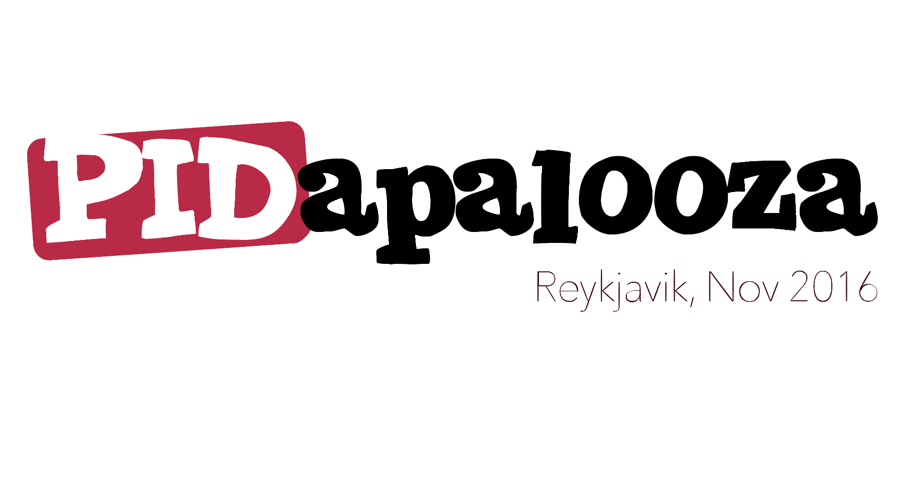 To paraphrase Donald Rumsfeld, before joining ORCID last May, I didn’t know how much I didn’t know about persistent identifiers (aka PIDs). Now at least I know enough to know how much I still don’t know!
To paraphrase Donald Rumsfeld, before joining ORCID last May, I didn’t know how much I didn’t know about persistent identifiers (aka PIDs). Now at least I know enough to know how much I still don’t know!
Like most scholarly publishers, I was familiar with things like DOIs, Ringgold IDs, and of course ORCID iDs, not to mention the more traditional identifiers like ISBNs and ISSNs. But (also, I suspect, like many people in our industry) I had no idea there were so many other PIDs out there – for people, places, and things; open and proprietary; institutional, regional, national, and global; discipline-specific and cross-disciplinary. PIDs really are all around us, acting as the glue in the research infrastructure, enabling the seamless flow of accurate information between systems, and ultimately helping to build trust in scholarly communications.
So why don’t more people know more about PIDs? For one thing, they’re often – as they should be – largely invisible to users. Most of the time most of us don’t need to know how systems interoperability works and, to be honest, we’re not that interested – except when it doesn’t work, of course. And even then all we really want is to know how fast it will be fixed and to be reassured that it won’t happen again. Anyone who is genuinely interested in how PIDs work is probably just a little bit nerdy really, aren’t they? Because, while PIDs might be essential to a strong research infrastructure, they’re not exactly cool, right?
Four organizations – California Digital Library, Crossref, DataCite, and ORCID – plan to challenge that view in November with PIDapalooza, a two-day open festival of persistent identifiers in scholarly research. Our hope is that, by bringing together a group of PID movers and shakers from around the world – people who create PIDs, use them, and innovate with them – we will be able to make real progress in identifying when, where, why, and how PIDs can help build a strong digital research infrastructure and developing PID-enabled community tools and services. We seek an infrastructure that works better for everyone; one that supports proper attribution and credit, promotes collaboration and reuse, enables reproducibility of findings, and fosters faster and more efficient sharing and dissemination of scholarly works.
Like the event that inspired its name, PIDapalooza will be more like a festival than a traditional conference. Rather than a formal keynote and sessions, there will be a mix of demos, workshops, brainstorming, and state-of-the-art updates. Two parallel streams will allow attendees to switch between more formal sessions and un-conference sessions.
The call for proposals, which is now open, invites ideas around eight themes:
- PID myths. Are PIDs better in our minds than in reality? PID stands for Persistent IDentifier, but what does that mean and does such a thing exist?
- Achieving persistence. So many factors affect persistence: mission, oversight, funding, succession, redundancy, governance. Is open infrastructure for scholarly communication the key to achieving persistence?
- PIDs for emerging uses. Long-term identifiers are no longer just for digital objects. We have use cases for people, organizations, vocabulary terms, and more. What additional use cases are you working on?
- Legacy PIDs. There are of thousands of venerable old identifier systems that people want to continue using and bring into the modern data citation ecosystem. How can we manage this effectively?
- The I-word. What would make heterogeneous PID systems “interoperate” optimally? Would standardized metadata and APIs across PID types solve many of the problems, and if so, how would that be achieved? What about standardized link/relation types?
- PIDagogy. It’s a challenge for those who provide PID services and tools to engage the wider community. How do you teach, learn, persuade, discuss, and improve adoption? What’s it mean to build a pedagogy for PIDs?
- PID stories. Which strategies worked? Which strategies failed? Tell us your horror stories! Share your victories!
- Kinds of persistence. What are the frontiers of ‘persistence’? We hear lots about fraud prevention with identifiers for scientific reproducibility, but what about data papers promoting PIDs for long-term access to reliably improving objects (software, pre-prints, datasets) or live data feeds?
Will we succeed in making PIDs cool? With your help, we hope so. And we also hope that PIDapalooza will become a permanent fixture on the scholarly communications calendar!
Discussion
2 Thoughts on "Why Persistent Identifiers Deserve Their Own Festival"



